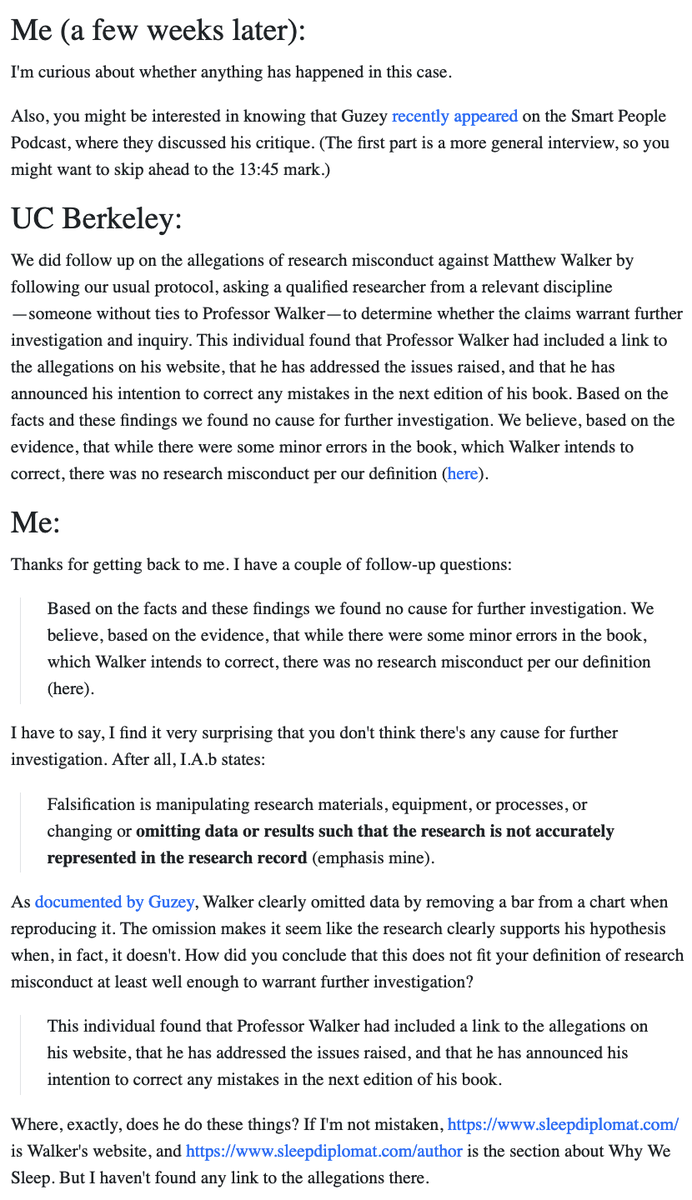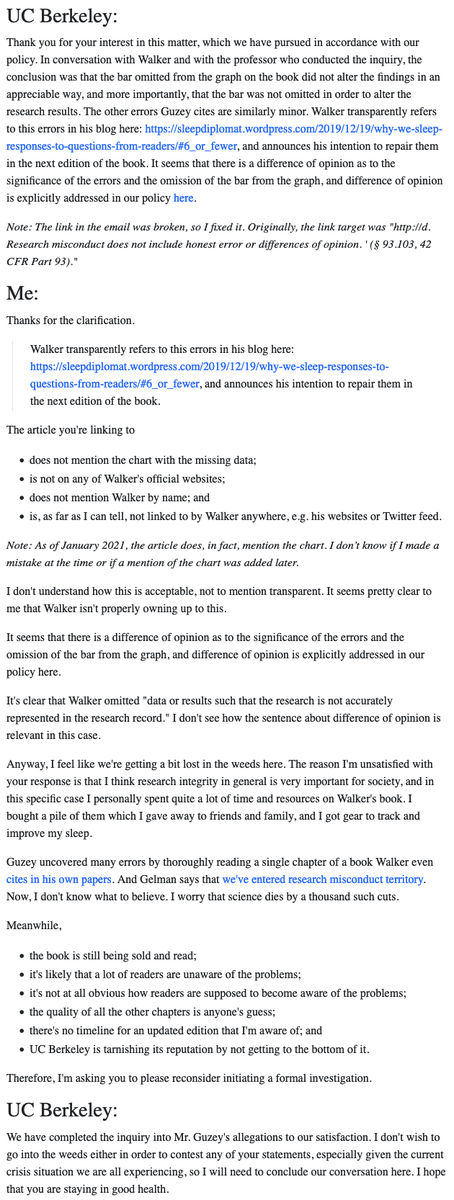I find it interesting that Matt Walker's Why We Sleep is still widely cited despite Alexey Guzey's fairly convincing rebuttal, "Matthew Walker's "Why We Sleep" Is Riddled with Scientific and Factual Errors"
Even more interesting is Berkeley's responseguzey.com/books/why-we-s…
Even more interesting is Berkeley's responseguzey.com/books/why-we-s…
to Hoiseth, where Berkeley's academic misconduct representative repeatedly makes things up, ending with "I don't wish to go into the weeds...to contest any of your statements", as if whether or not statements of fact are true is just irrelevant weeds.
yngve.hoiseth.net/articles/why-w…


yngve.hoiseth.net/articles/why-w…


And BTW, on Mastodon, where the length limit is longer, I noted that I'm much more pro "getting a lot of sleep" than Guzey and don't find Guzey's arguments for how you can get by on little sleep convincing, but this doesn't make Walker's book or Berkeley's response any good.
• • •
Missing some Tweet in this thread? You can try to
force a refresh



![[QT previous screenshot] @ahidalgosre Alright. Fine. I’m](https://pbs.twimg.com/media/Fhjiu4haMAAlcso.jpg)


